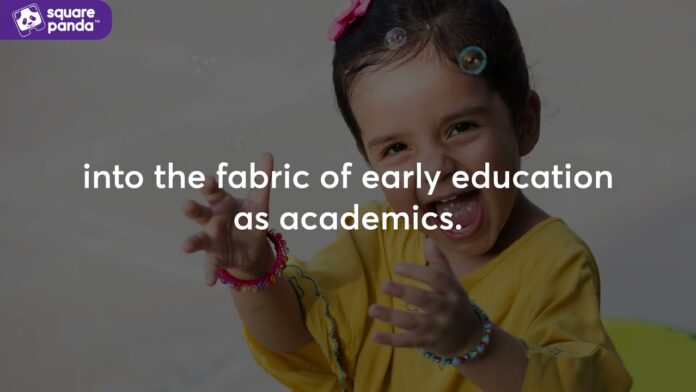Celebrations and rituals are an integral part of any culture, reflecting the beliefs, values, and traditions of a particular group of people. They serve as a way to preserve and pass down cultural heritage, foster a sense of community, and connect individuals with their roots. From ancient festivals to modern-day ceremonies, cultural celebrations and rituals have been shaping the human experience for centuries.
Importance of Cultural Celebrations
Preserving Cultural Identity
Cultural celebrations and rituals are a powerful means of preserving the unique identity and heritage of a particular group of people. They serve as a way to keep traditions alive and ensure that they are passed down from generation to generation. By participating in these events, individuals can connect with their cultural roots and reinforce their sense of belonging to a larger community.
Fostering Community Cohesion
Cultural celebrations and rituals often bring people together, fostering a sense of community and shared identity. These events provide an opportunity for individuals to come together, celebrate their common heritage, and strengthen the bonds that tie them to one another. This can be particularly important in diverse societies, where cultural celebrations can serve as a bridge between different groups and promote cross-cultural understanding.
Promoting Spiritual and Emotional Well-being
Many cultural celebrations and rituals have a strong spiritual or emotional component, serving as a way for individuals to connect with their beliefs, values, and inner selves. These events can provide a sense of meaning, purpose, and belonging, which can have a positive impact on an individual’s overall well-being.
Economic Benefits
Cultural celebrations and rituals can also have significant economic benefits, particularly in the tourism industry. Many communities around the world have leveraged their unique cultural events to attract visitors and generate revenue, creating jobs and supporting local businesses.
Types of Cultural Celebrations

Religious Celebrations
Religious celebrations are one of the most common forms of cultural celebrations, as they are often deeply rooted in the beliefs and traditions of a particular group of people. These events can range from large-scale festivals to more intimate ceremonies, and may involve rituals, prayers, and other forms of spiritual expression.
Seasonal Celebrations
Many cultures have developed celebrations and rituals that are tied to the changing of the seasons or the natural cycles of the Earth. These events may be associated with the planting and harvesting of crops, the change in weather patterns, or the movement of celestial bodies.
Life-cycle Celebrations
Cultural celebrations and rituals can also be associated with significant life events, such as birth, coming of age, marriage, and death. These events often serve as a way to mark important transitions and milestones in an individual’s life, and may involve elaborate ceremonies, rituals, and traditions.
Historical Commemorations
Some cultural celebrations and rituals are focused on commemorating important historical events or figures. These events can serve as a way to honor the past, as well as to foster a sense of shared identity and national pride.
Artistic and Creative Celebrations
Many cultures also have celebrations that are focused on the arts, music, and other forms of creative expression. These events can serve as a way to showcase the unique cultural heritage of a particular group, as well as to promote artistic creativity and innovation.
Significance of Rituals in Different Cultures

Spiritual and Religious Rituals
Rituals are often deeply rooted in the spiritual and religious beliefs of a particular culture. They can serve as a way to connect individuals with the divine, to honor sacred entities or deities, and to maintain a sense of balance and harmony within the universe.
Rites of Passage
Rituals can also play an important role in marking significant life transitions, such as birth, coming of age, marriage, and death. These rites of passage can serve as a way to recognize and celebrate these important milestones, as well as to facilitate the transition from one stage of life to the next.
Social and Community Rituals
Rituals can also have a strong social and community-building component, serving as a way to reinforce social hierarchies, gender roles, and other forms of cultural identity. These rituals can also be a way to maintain social order and cohesion within a particular group or community.
Symbolic and Representational Rituals
Rituals can also serve as a way to represent and symbolize important cultural values, beliefs, and traditions. These symbolic rituals can be used to communicate important messages, to reinforce cultural identity, and to create a sense of shared meaning and understanding.
Practical and Functional Rituals
In some cultures, rituals can also serve a more practical or functional purpose, such as ensuring the success of a particular activity or event, or maintaining balance and harmony within the natural or social environment.
Examples of Cultural Celebrations and Rituals
The Holi Festival in India
The Holi Festival is a Hindu festival celebrated in India and other parts of the world. It is a celebration of the arrival of spring, the triumph of good over evil, and the strengthening of social bonds. The festival is marked by the throwing of colored powder and water, as well as the lighting of bonfires and the consumption of traditional foods and drinks.
The Eid al-Fitr in the Islamic World
Eid al-Fitr is a Muslim festival that marks the end of the holy month of Ramadan. It is a time of celebration, feasting, and the exchange of gifts. The festival is marked by special prayers, the giving of charity, and the gathering of family and friends.
The Dia de los Muertos in Mexico
The Dia de los Muertos, or Day of the Dead, is a Mexican holiday that honors the memory of deceased loved ones. It is celebrated with the creation of colorful altars, the offering of traditional foods and drinks, and the visiting of gravesites.
The Lunar New Year in East Asia
The Lunar New Year, also known as the Chinese New Year, is a celebration of the start of a new year according to the lunisolar calendar. It is marked by the lighting of lanterns, the exchange of gifts, and the performance of traditional dances and rituals.
The Burning Man Festival in the United States
The Burning Man Festival is an annual event held in the Nevada desert, which celebrates art, community, and self-expression. It is marked by the construction of elaborate art installations, the creation of temporary communities, and the burning of a large wooden effigy.
Impact of Cultural Celebrations on Society
Strengthening Cultural Identity
Cultural celebrations and rituals can play a crucial role in strengthening the cultural identity of a particular group of people. By participating in these events, individuals can connect with their roots, reinforce their sense of belonging, and pass down traditions to future generations.
Promoting Social Cohesion
Cultural celebrations and rituals can also serve as a way to promote social cohesion and understanding between different groups within a society. By providing a shared experience and a common point of reference, these events can help to bridge cultural divides and foster a sense of community.
Economic Impact
As mentioned earlier, cultural celebrations and rituals can also have significant economic benefits, particularly in the tourism industry. These events can attract visitors from around the world, generating revenue for local businesses and supporting the local economy.
Preserving Cultural Heritage
Cultural celebrations and rituals are also essential for preserving the cultural heritage of a particular group of people. By maintaining these traditions, communities can ensure that their unique cultural identity and values are passed down to future generations.
Promoting Intercultural Exchange
Cultural celebrations and rituals can also serve as a platform for promoting intercultural exchange and understanding. By sharing their traditions with others, communities can foster a greater appreciation for cultural diversity and encourage cross-cultural dialogue.
Conclusion
In conclusion, cultural celebrations and rituals are an integral part of the human experience, serving as a way to preserve cultural identity, foster community cohesion, and promote spiritual and emotional well-being. From ancient festivals to modern-day ceremonies, these events continue to shape the lives of individuals and communities around the world.
As we navigate an increasingly globalized world, the importance of preserving and celebrating cultural diversity has never been more critical. By engaging in these rich and diverse cultural traditions, we can not only deepen our understanding of ourselves and our place in the world, but also contribute to the creation of a more just, equitable, and inclusive global society.









